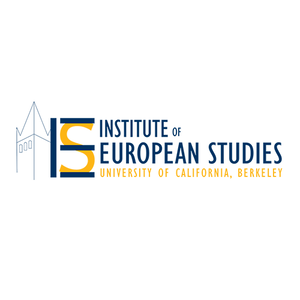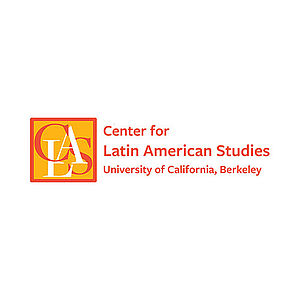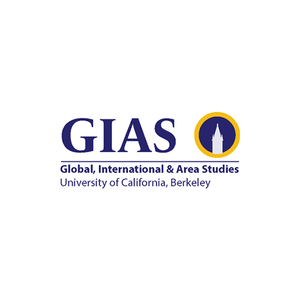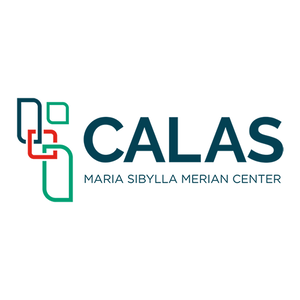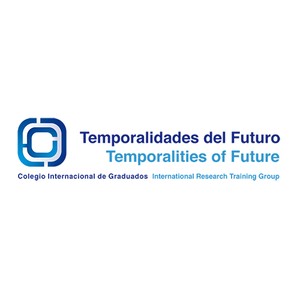Flying Down to Rio: Aviation, National Identities, and Hemispheric Relations in the Americas
Apr 30, 2021 | 12pm ET
Lecture (virtual) | Speakers: Melina Piglia (National University of Mar del Plata); Leonie Schuster (Kiel University); Peter Soland (Southeast Missouri State University); Moderators: Stefan Rinke (Freie Universität Berlin) Mario Peters (GHI Washington)
The German Historical Institute is pleased to announce the next session of the new virtual lecture series “Mobilities and Migration across the Americas.” The lecture series is co-sponsored by the Institute of European Studies; Global, International & Area Studies; the Center for Latin American Studies (all at UC Berkeley); The Maria Sibylla Merian Center for Advanced Latin American Studies (CALAS); Mecila: Maria Sibylla Merian Centre Conviviality-Inequality in Latin America; and the The International Research Training Group (IRTG) "Temporalities of Future."
Featuring lectures by Leonie Schuster (Kiel University), Peter Soland (Southeast Missouri State University), and Melina Piglia (National University of Mar del Plata), this is the fourth event in a four-part lecture series on “Mobilities and Migration across the Americas,” organized by Albert Manke (Pacific Regional Office of the German Historical Institute Washington at the University of California, Berkeley) and Mario Peters (GHI Washington). The series aims at providing a platform for engaging and inspiring interdisciplinary debates by bringing together scholars from Latin America and the Caribbean, Anglo-America, and Europe.
In this session, Leonie Schuster will address the transcontinental flight from New York to Rio de Janeiro undertaken by the U.S. aviator Walter T. Hinton and his Brazilian counterpart Euclydes Pinto Martins in the early 1920s. She argues that contemporary visual, cartographic, and textual representations of this event served not only to highlight U.S.-Brazilian cooperation but also to assert Brazil’s position as a regional power in South America. Peter Soland will explore the development of Mexican aviation against the background of Mexico’s Second World War alliance with the United States and its post-war economic expansion. He contends that the same processes that buoyed commercial airlines also reinforced cultural stereotypes that were exploited to attract U.S. tourists to Mexico. Focusing on the ‘Peronist Years’ (1946-1955), Melina Piglia invites us to understand the formation of Argentinian aviation policy as a strategy to limit U.S. influence in South America. For further information, please see the series announcement.
About the speakers
Melina Piglia holds a degree and a Doctorate in History from Universidad de Buenos Aires and is currently a Professor at Universidad de Mar del Plata (Argentina). She is also a researcher at the Institute of Humanities and Social Sciences (National Scientific and Technical Research Council and Universidad Nacional de Mar del Plata). Her research focuses on topics related to tourism and transport policy in the history of Argentina. Since 2020 she has been a member of the Executive Committee of the International Association for the History of Transport, Traffic, and Mobility (T2M).
Leonie Schuster is a lecturer for Portuguese Cultural and Regional Studies at Kiel University. Her interests lie at the intersection of history and culture. After studying Latin American Studies, Spanish Philology, and Modern History at the Free University of Berlin and in Porto Alegre, Brazil, she was a research associate in the research group “Actors of Cultural Globalization”, funded by the German Research Foundation (DFG). She earned her PhD in History and Cultural Studies in 2017. Using a wide range of textual and visual sources, her dissertation analyzes how aviation pioneers and events were represented and interpreted in Brazil between 1900 and 1922, and how, in this way, ideas of the Brazilian nation and of its place in the world were created. In 2018, her first monograph was published, titled Brasilianische Höhenflüge.
Pete Soland is a scholar of Latin American History specializing in modern Mexico. He earned his doctorate in History from the University of Arizona in 2016 and, subsequently, accepted a post-Doctoral Fellowship with the Center for Southwest Studies at Fort Lewis College in Durango, CO for the 2016–2017 academic year. Currently, he holds the rank of Assistant Professor of Latin American History at Southeast Missouri State University in Cape Girardeau, MO. He is currently revising his dissertation, “Mexican Icarus: Modernity, National Identity, and Aviation Development in Mexico, 1928–1958” into a monograph with the University of Pittsburgh Press. He has also published several articles and chapters in edited volumes further exploring the topic. His fascination with the intersection between technology, politics, and culture continues to inform his research. His new project explores the transnational history of nuclear programs in Latin America.
Moderators
Stefan Rinke is professor at the Department of History at the Institute for Latin American Studies and the Friedrich-Meinecke-Institute at Freie Universität Berlin. Before coming to Berlin in 2005 he taught at Katholische Universität Eichstätt and at Tufts University. He was awarded the Premio Alzate by the Mexican Academy of Sciences, an honorary doctorate by the Universidad Nacional de San Martín, as well as the Einstein Research Fellowship. He was speaker of the Collaborative Research Center "Governance in Areas of Limited Statehood" (2009-2018) and has been speaker of the International Research Training Group "Temporalities of Future" since 2019. He has also been a member of the academic advisory board of the German Historical Institute Washington and its Pacific Regional Office at the University of California, Berkeley since 2019. Rinke has published numerous monographs, collected volumes, and articles. His latest book Conquistadoren und Azteken was published in 2019 and a Spanish translation of the book came out in 2021.
Mario Peters is a research fellow in American and Transatlantic History at the German Historical Institute Washington. Prior to this position he was a Feodor Lynen postdoctoral fellow of the Alexander von Humboldt Foundation and visiting scholar at the Federal University of Rio de Janeiro. Before that he worked as assistant professor and taught Latin American and Caribbean history at Leibniz University Hanover. He is the author of Apartments for Workers. Social Housing, Segregation, and Stigmatization in Urban Brazil (2018). His current research interests are spread across the intersection of mobility studies, environmental history, and the study of Inter-American relations.
About the Lecture Series
Lectures every last Friday of each month: January 29, 2021 | February 26, 2021 | March 26, 2021 | April 30, 2021 (9am PT / 12pm ET / 6m CET). The lecture series is co-sponsored by the Institute of European Studies; Global, International & Area Studies; the Center for Latin American Studies (all at UC Berkeley); The Maria Sibylla Merian Center for Advanced Latin American Studies (CALAS); Mecila: Maria Sibylla Merian Centre Conviviality-Inequality in Latin America; and the The International Research Training Group (IRTG) "Temporalities of Future."
Over the past decade, the history of mobility in the Americas has sparked growing interest among historians and scholars from neighboring disciplines. While recent developments in international research continue to inform this trend, researchers across the region have been combining local, transregional, and transnational approaches on patterns and actors of mobility in creative ways. Setting the focus on inter-American entanglements and disentanglements, connections and ruptures, this virtual GHI lecture series addresses two major strands: the history of mobility in the sphere of transportation, planning, and infrastructure on the one hand, and the history of human mobility including migration regimes and transnational governance on the other.
In this sense, we will tap into such varied issues as urban public transport, the creation of traffic and diasporic networks and the production, circulation, and conveyance of knowledge. Secondly, we are interested in the social impacts of new infrastructure and means of transportation as well as policies regulating migration, and the significance of mobility for hemispheric relations in the Americas. Thirdly, we deem the perspective of migrants themselves, but also of technical experts and policymakers and the knowledge they convey of key importance toward a deeper understanding of the personal impact large-scale policies and planning might have on people’s livelihoods. Bringing together scholars from Latin America and the Caribbean, Anglo-America, and Europe, this lecture series shall provide a platform for engaging and inspiring interdisciplinary debates.
Organizers: Albert Manke (Pacific Regional Office of the German Historical Institute Washington at the University of Califonia, Berkeley) and Mario Peters (GHI Washington)
Migration and Racism in the Americas: The Case of Migrants in the United States
January 29, 2021
Speaker: Ramón Grosfoguel (University of California, Berkeley); Comment: Julia Roth (Bielefeld University)
Mexico and the United States: Frontierization and Migration Policies February 26, 2021
Speakers: Kateřina Březinová (Metropolitan University Prague) and Luicy Pedroza (El Colegio de México)
Public Transport in the Americas: Mobility and Transatlantic Scientific Exchanges March 26, 2021
Speakers: Andra B. Chastain (Washington State University Vancouver); Dhan Zunino Singh (National University of Quilmes)
Flying Down to Rio: Aviation, National Identities, and Hemispheric Relations in the AmericasApril 30, 2021
Speakers: Melina Piglia (National University of Mar del Plata); Leonie Schuster (Kiel University); Peter Soland (Southeast Missouri State University)
